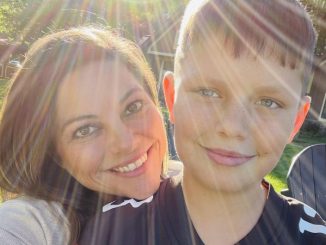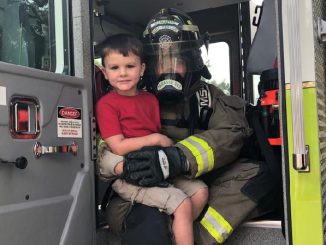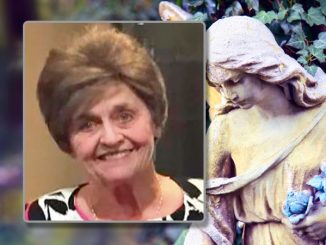
Imagine being forced to leave home and dropped right in the middle of a battle overseas only to return three years later to face indifference from some people and indignation from others.
Thomas Pitre, a Vietnam veteran living in Luling, remembers his experience vividly. It was the first time that he realized exactly how some people felt about the ongoing Vietnam crisis.
“They called us ‘baby killers,’” he said. “I was on my way to basic training the first time it happened. I was getting ready to board a plane in the airport in St. Louis during 1971 and I was wearing my military uniform.
“Someone spit on me and yelled out ‘you baby killer!'”
Pitre says he didn’t respond negatively to the comment. He just kept walking and boarded the plane. The conflict officially ended four years later.
Pitre says the only way to avoid being drafted at that time was to attend college.
“This was a war for the poor whites and the blacks,” he said. “I grew up in a family of nine children. My mother and father worked hard, but they couldn’t afford to send me to college, just like many of the soldiers I met overseas.
“I was the only person in my class that was drafted that year. I was 20 years old.”
Pitre says the My Lai Massacre, which occurred three years before Pitre was drafted, made people refer to a lot of the soldiers as ‘baby killers.’
“I remember the day I was drafted and I was leaving home,” he said. “A close friend of mine at the time asked me where I was going and when I told her Vietnam, she began to cry because she thought that I was going to kill babies.”
Vietnam was the first time images of war were broadcast on television and Pitre says the entire world got to watch the violence unfold before their eyes. Because of that, he wasn’t surprised by the reaction he received from some people.
“The people got to see a lot of things on television and some of those things involved children getting killed,” Pitre said. “It’s a lot different for soldiers today. Almost everybody is treated like a hero.”
Pitre doesn’t think of himself as a hero, because although he experienced some of the dangers of war, he wasn’t exposed to much conflict.
“My job was to drive and repair the heavy equipment,” he said. “I wasn’t really on the frontlines of the war, but I did see some conflict.”
Pitre says people like Audie Murphy, a soldier that was awarded the Congressional Medal of Honor for fighting in World War II, are the types of people he considers heroes.
Some of those decorated heroes happen to live right in the parish. Two of them, Parish President V. J. St. Pierre and Parish Purchasing Officer Bobby Donaldson, serve the parish on a daily basis.
“I was a Marine during Vietnam and I was shot 11 times,” St. Pierre said. “Vietnam is the only conflict in history that was not declared a war, but in my opinion it was a war.”
St. Pierre says his wife tells him that he still has nightmares, though he doesn’t remember them.
Donaldson received one of the highest military honors for bravery, a Purple Heart.
“Without giving too much detail, we went in with 265 soldiers to battle that day and we came out with only 65 living,” he said. “I’ve heard of soldiers being called baby killers, some that I was with said it happened to them, but that never happened to me.”
A course taught at Tulane University by Professor Mark Carson is geared towards teaching students about the longest battle fought by American soldiers overseas in U.S. history.
“I was trying to give the students a deeper understanding of why the U.S. went to war, why we fought the way we did, why we lost and what it means in terms of present and future conflicts,” Carson said.
Carson says each student had to write an oral history in which they interviewed someone who played some active part in either the war, the protest movement or in any other capacity.
“We’re doing a lot of oral histories,” Adam Eitmann, a Luling native who took the course, said. “We want to make sure people know who these veterans are and acknowledge them.”
Eitmann says he plans to continue to gather and preserve as much information about local Vietnam veterans as possible.
But Pitre didn’t feel honored when he first returned.
In fact, when he tried to become a member of the VFW Hall in Luling shortly after he arrived back home, he says he was talked down to by some veterans from earlier wars.
“They really didn’t want me to be a part of the VFW,” he said. “They made a lot of little snide comments, but that’s in the past now.”
Pitre says it took a heart attack to end his nightmares.
“I used to have terrible dreams about my experiences,” he said. “But ever since I suffered a heart attack, the dreams seemed to have stopped.”
And while Pitre may not consider himself a hero, at least one man will always remember the time he spent with the veteran.
“Talking with Mr. Pitre was especially rewarding,” Eitmann said. “His story, like that of so many others, was complex on so many levels. While you are reading books about the history of U.S. involvement in Vietnam, it is easy to forget that the figures and names in the accounts are real people.
“With Mr. Pitre, I got to put a face to the name, a soul with the accounts. It was a moving and humbling experience.”




Be the first to comment